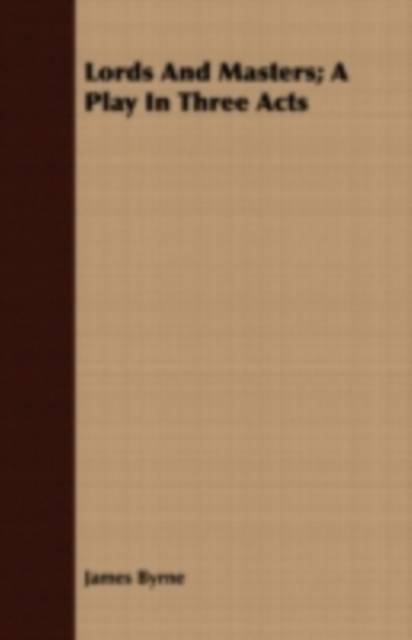
- Afhalen na 1 uur in een winkel met voorraad
- Gratis thuislevering in België vanaf € 30
- Ruim aanbod met 7 miljoen producten
- Afhalen na 1 uur in een winkel met voorraad
- Gratis thuislevering in België vanaf € 30
- Ruim aanbod met 7 miljoen producten
Masters & Lords
Mid-19th-Century U.S. Planters and Prussian Junkers
Shearer Davis Bowman
Hardcover | Engels
€ 390,45
+ 780 punten
Omschrijving
Among the regional landed elites in the Western World of the mid-1800s, the two most formidable were the owners of slave plantations in the Southern states of the U.S. and the proprietors of manorial estates in the provinces of Prussian East Elbia. Masters and Lords surveys the economic, social, and political histories of the two classes from the seventeenth and sixteenth centuries respectively, and pays particular attention to planters during the secession crisis of 1860-61 and to Junkers during the revolutionary crisis of 1848-49. In the process, Bowman grapples with such ambiguous and contentious concepts as capitalism, conservatism, and paternalism. Despite very different labor systems, antebellum planters and contemporaneous Junkers alike presided over landed estates that functioned as both autocratic political communities and agricultural enterprises exporting valuable commodities to industrializing England. This book also highlights important geographic, demographic, and political contrasts between the South and East Elbia as regional societies. Bowman concludes that the crucial distinction between the two landed elites is to be found in the Junkers' militarist and estatist monarchism versus the planters' libertarian but racist republicanism.
Specificaties
Betrokkenen
- Auteur(s):
- Uitgeverij:
Inhoud
- Aantal bladzijden:
- 384
- Taal:
- Engels
Eigenschappen
- Productcode (EAN):
- 9780195052817
- Verschijningsdatum:
- 29/04/1993
- Uitvoering:
- Hardcover
- Formaat:
- Genaaid
- Afmetingen:
- 159 mm x 236 mm
- Gewicht:
- 743 g

Alleen bij Standaard Boekhandel
+ 780 punten op je klantenkaart van Standaard Boekhandel
Beoordelingen
We publiceren alleen reviews die voldoen aan de voorwaarden voor reviews. Bekijk onze voorwaarden voor reviews.










